Flick - A Unique Fishing Co-op in the Tanzawa Mountains
April 24, 2016
Flick, a fishing co-op high in a small mountain valley, which is tucked deep in the Tanzawa-Oyama Quasi-National Park, is a unique and magical place. It boasts a fairly long section of river, that besides the six weirs that fall within its boundaries, is otherwise left totally untouched. It is a catch and release only stream and is stocked, only as needed, with Yamame and Iwana. I had been wanting to visit this place for a while, but due to the plethora of other streams to explore in the area, that did not require a fishing ticket or an elementary lingual education in Japanese, I had been a little reluctant to visit. That is until last week when I went to scope it out as a possible location to take clients.
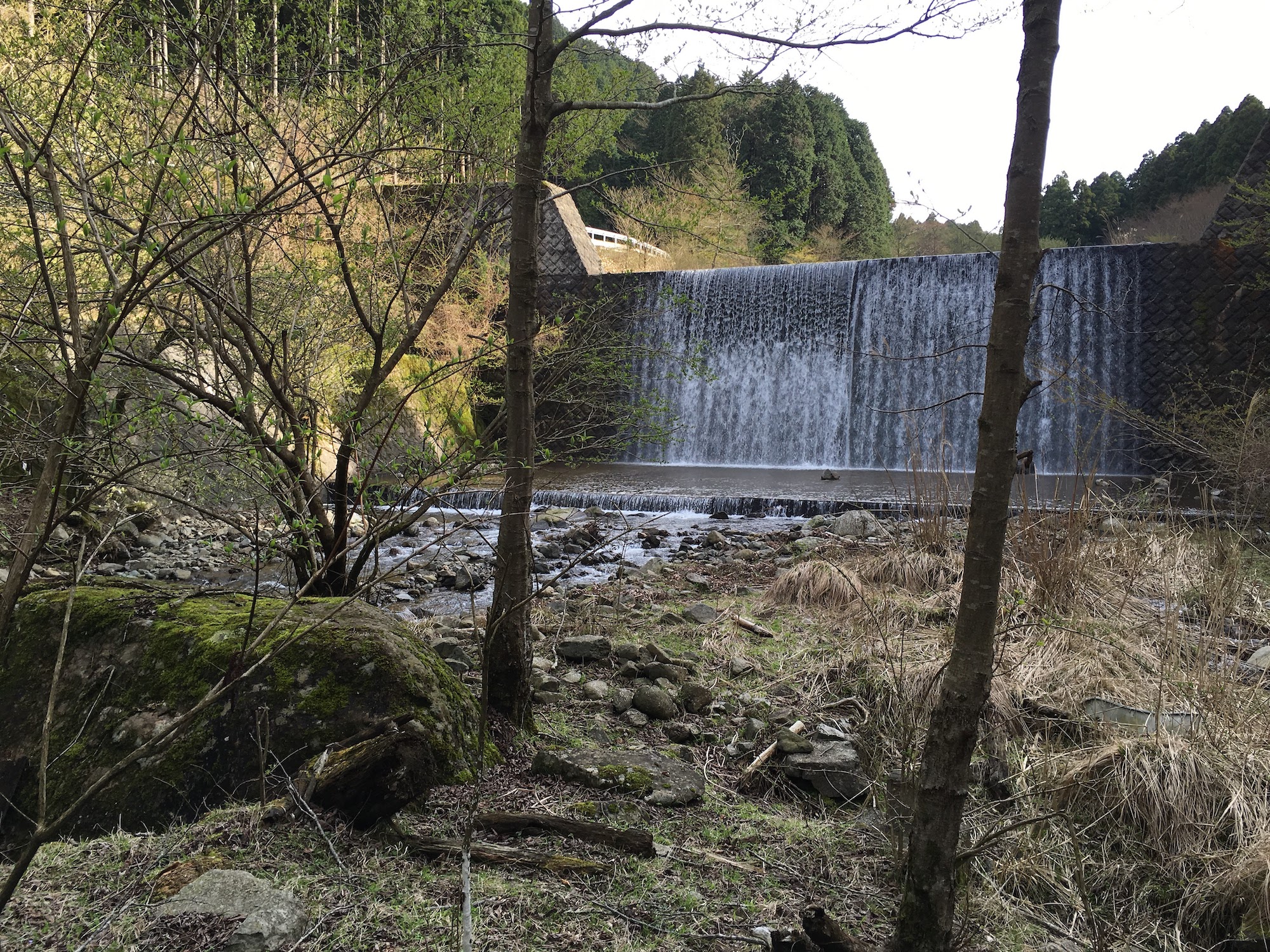
When we arrived we found the campground host, who was young and chatty, inside a beautiful Airstream trailer. Thankfully my good friend was with me who is a Japanese national so he did all the conversing; I stood there soaking it all in smiling, nodding my head, and laughing when they did – even though I could not understand about 95% of what they were saying. I enjoy listening to Japanese, I think it is an exceptional beautiful language. Plus, hearing how the words are pronounced helps me to refine my own limited Japanese vocabulary and pronunciation. Case in point: For the first time since moving to Japan, I ordered a honey latte the other day and the lady understood me the first time I spoke (normally I have to repeat myself several times before giving up and pointing to pictures, gesturing wildly with my hands, or pulling out the translation app on my iPhone). I was so happy I wanted to jump over the counter and give her a big hug! But I restrained myself. There was no one else at the campground so we wandered around. There was an outdoor pizza oven with a huge deck, the nicest porta-poties I have ever seen, and even a vending machine that served beer! The river flowed right through camp and there were numerous cherry trees that were beginning to blossom too. The place was a little slice of heaven.
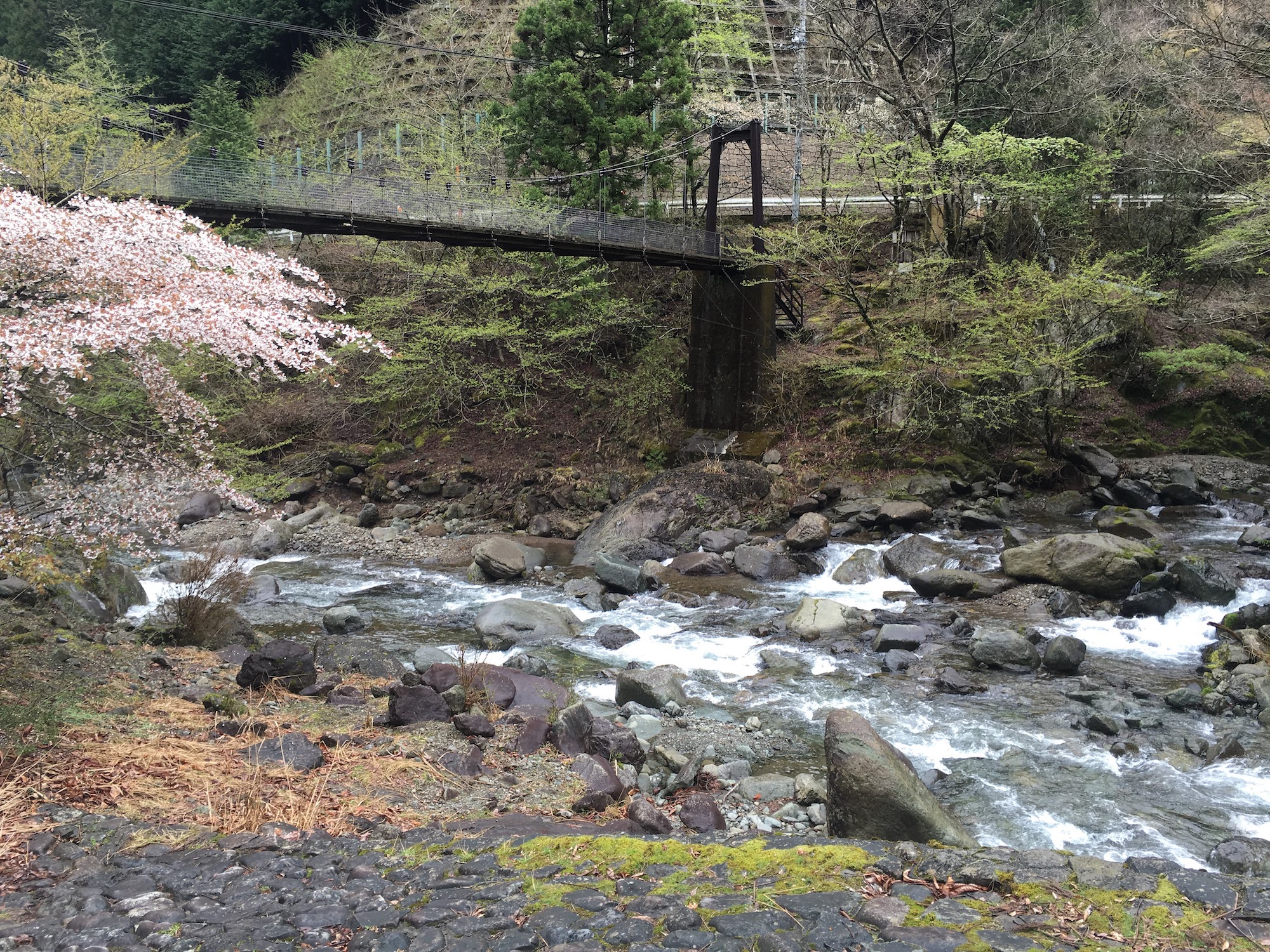
You cannot fish in the campground (which is called BoSco), the river there is reserved for swimming and looking at so we hopped in the van and drove down to the parking lot for the Flick fishing co-op. I headed down to the river, eager to see if my luck from the backpacking trip the other day would carry over. Right at the bottom of the trail was the quintessential trout pool. I casted confidently but nothing rose to my fly except a leaf. I moved upstream working my way through several pools but coming up empty handed at every one. Then I got my line stuck in an overhead tree branch and when I was attempting to retrieve the line my hand slipped and I dropped my rod just as the branch sprang back, I heard a loud crack. My rod tip had broken! Thankfully I had another rod in the car, which was not that far away. After getting myself sorted out I walked back to where I had been last and began fishing again.
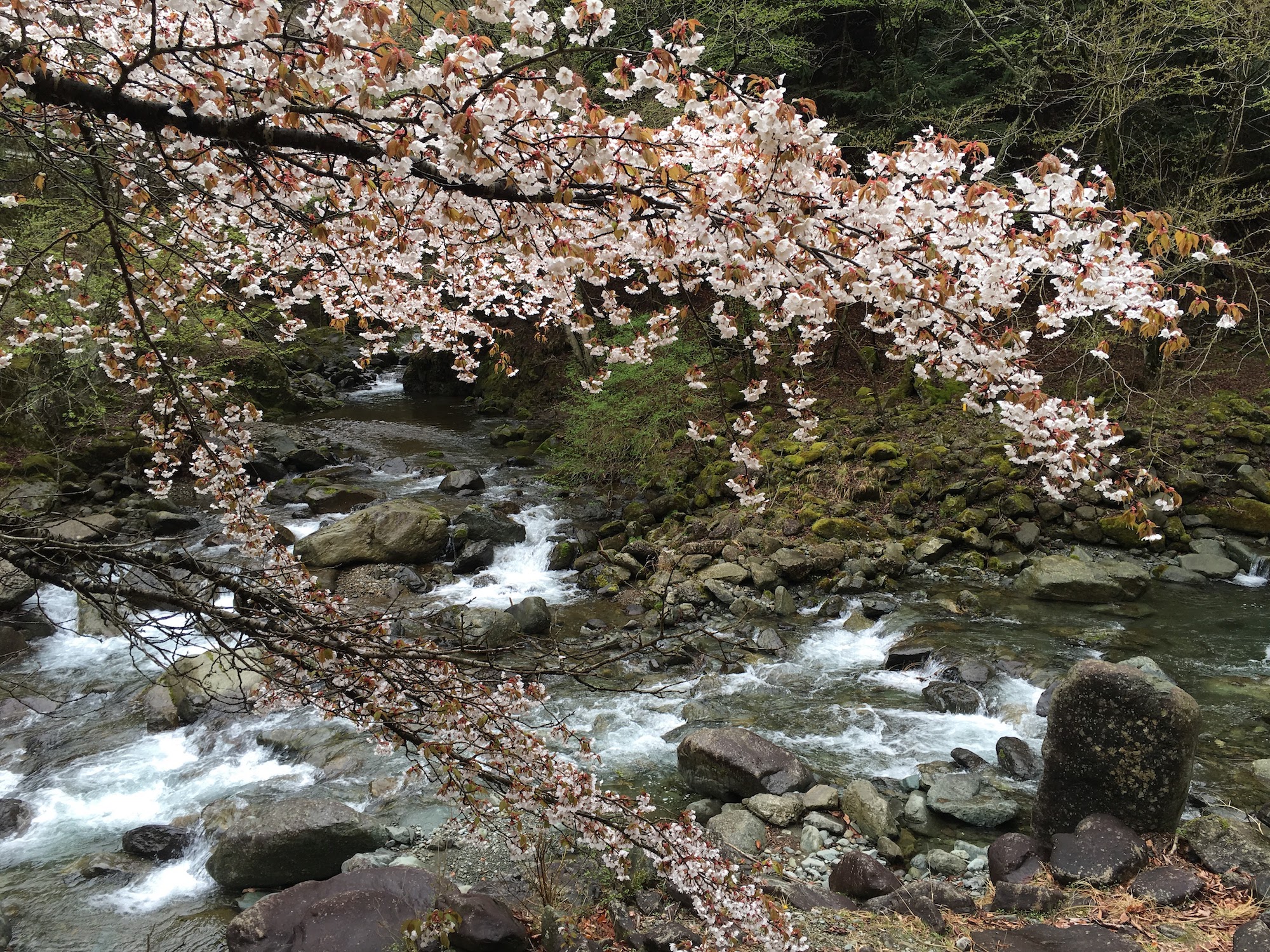
There were trees all up and down the river, with branches sticking out over the water about 2-3 meters above the stream. The only option to get the fly into the pools was to cast sideways. One of the things I learned from John and Paul during my time on the River Don in The Peak District, was the importance of leading your fly. They do a much better job of explaining than I do but the gist is that when you cast upstream and your fly is drifting back towards you, you want your rod tip in front of the fly but not so far in front that your dragging the fly. This enables you to stay connected to the fly and sense when you have a take. This is especially important in water where the fish are easily spooked or experience a lot of pressure. When you are casting the typical 10-12-10 behind your back cast, this technique is very easy. However, when you are casting sideways I found it to be much harder. Almost all the pools required the sideways cast to reach, and I am sure that is why I came up empty handed. After a bit of reflection, I determined that I was having three problems:
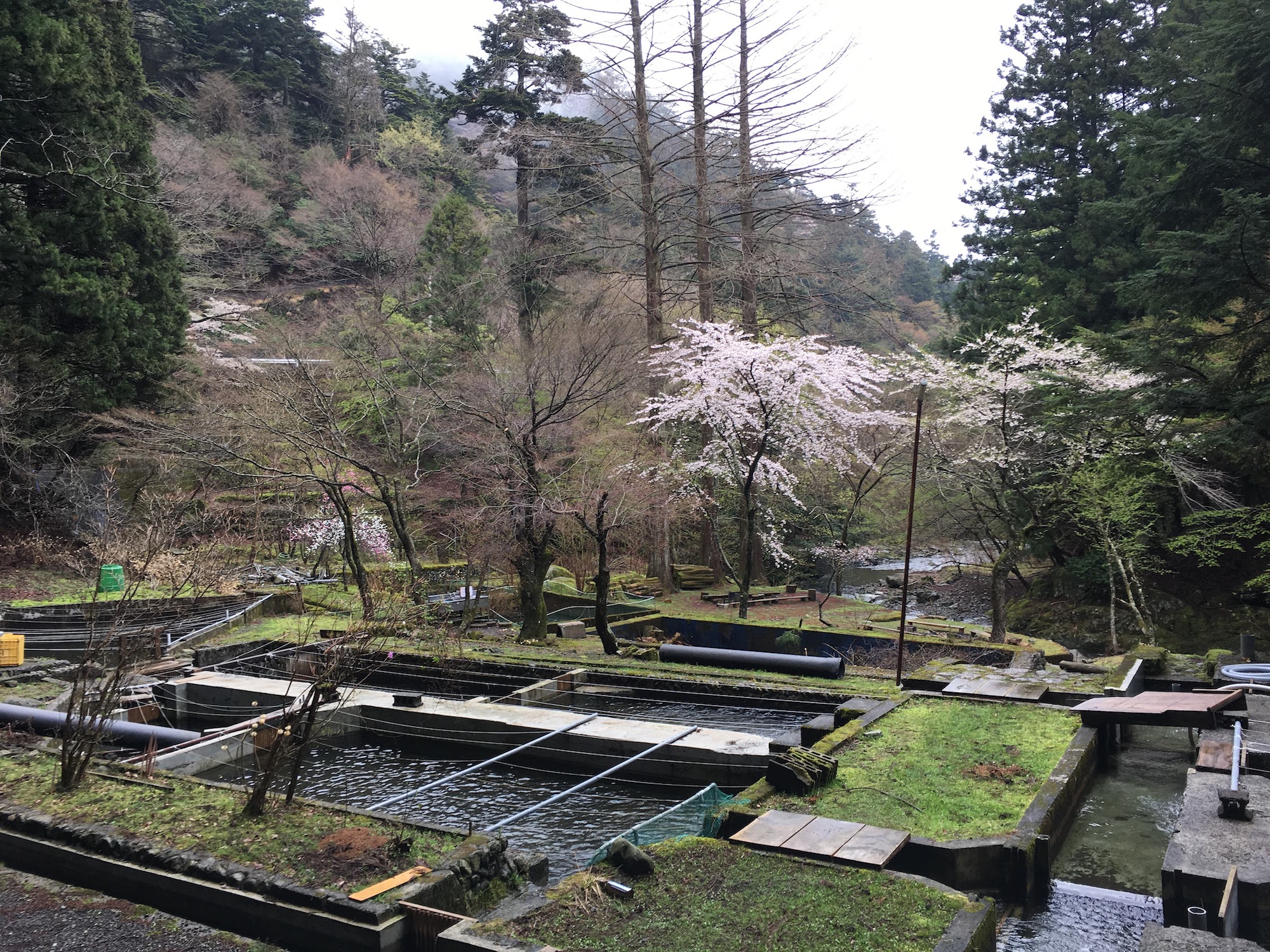
The solutions I found were as follows:
A delicate presentation, if I got too aggressive with the cast then the line ended up in a heap in the water
A delicate presentation also helped the rod tip not to oscillate so much. Once I got the rod to stop vibrating like a pitch-fork on crack I found I was able to regain contact with the fly within a half-second or so of it splashing down.
Pausing on the back cast is important (as well as not using too much wrist). Sometimes there will be obstacles behind you, so you cannot let the fly travel the full length on the back cast. I found that as long as the line was looped in half when I began the forward cast then my tangles dropped to almost zero. The pause is very quick, almost imperceptible.
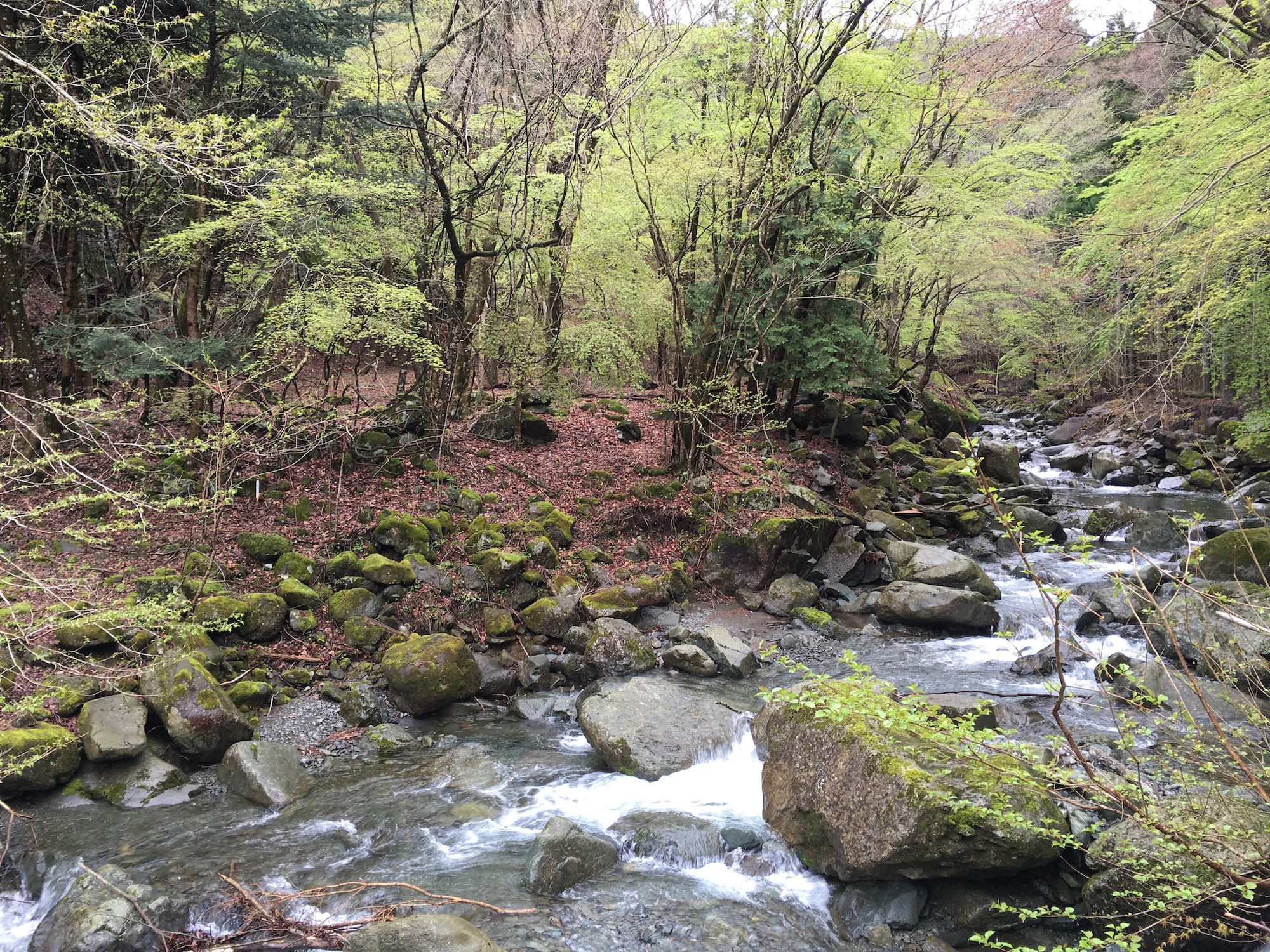
I had been practicing all this in a particularly nice looking pool. I figured that any fish that lived in there would not going to be coming out anytime soon, so I kept working on my technique. Then on a perfect cast (after about 100 tries) I suddenly felt a solid tug on the fly, I set the hook and the fight was on. The Yamame was probably about 18-20cm but he put up quite the fight.
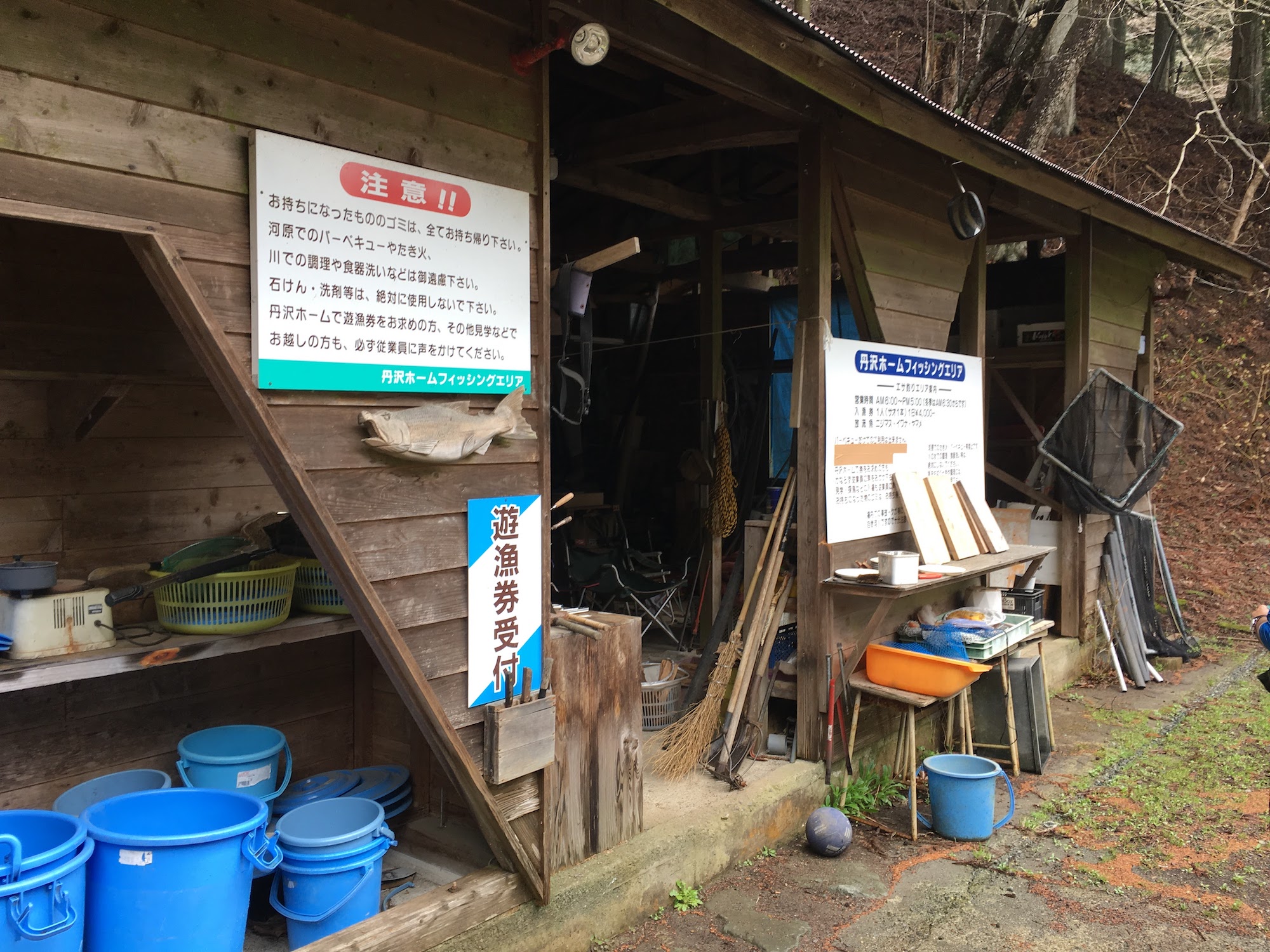
After releasing him back into the water I continued on upstream. I had a few more fish on the line but they all got off. It did not matter though, these fish were under a lot of pressure and I felt great that I had caught even one. Not to mention, I was having a lot of fun working on my sideways casting technique. After an hour or two of fishing it was time to pack up and make the drive home. Flick is a great, albeit challenging place to fish. If you are a beginner I would not recommend it. However, if you have got the basics down then you are sure to enjoy your time there. The busiest time is July and August and they are closed December-March (this may be a good place to get your fishing fix in November though when the rest of the streams in Japan are off limits)…
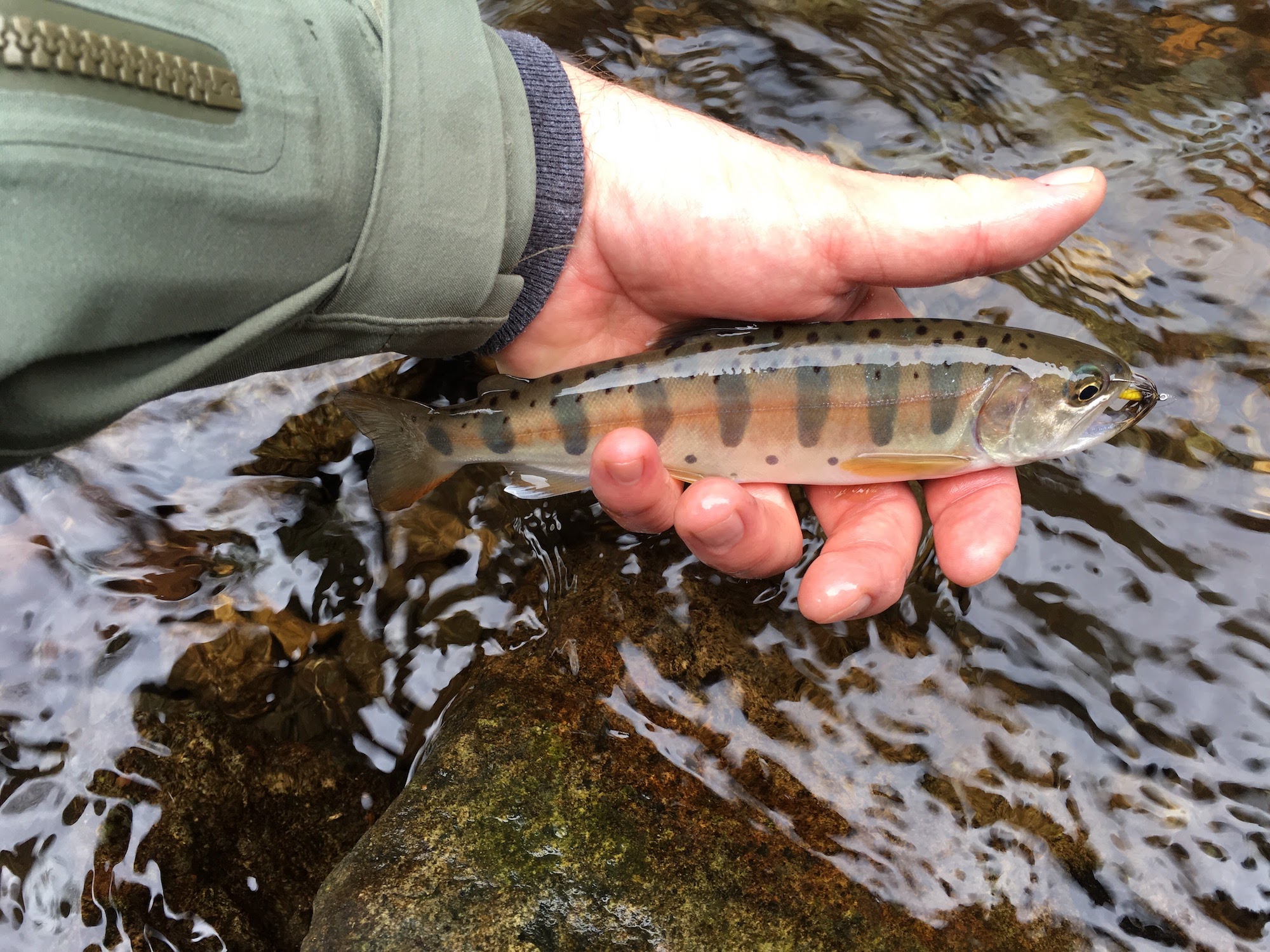
Blog Navigation

Fallfish Tenkara is the brainchild of Isaac Tait who now lives in New England but dreams of returning, one day, to Japan. You should follow him on Twitter.